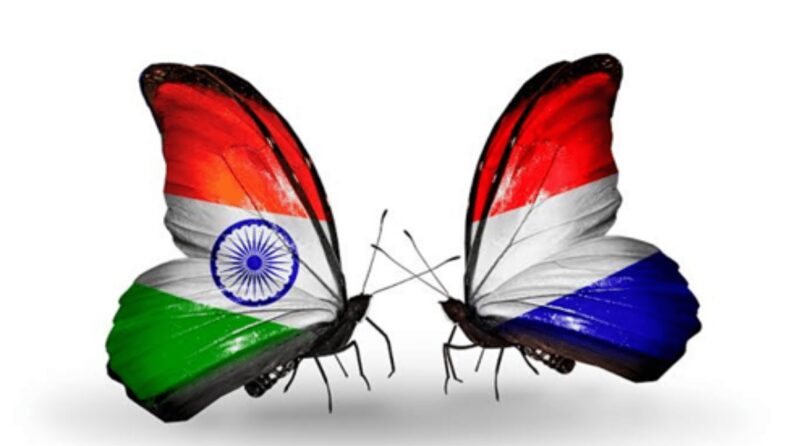Amidst the recent tiff at UN General Assembly (on 6 May 2022), between the Indian and Netherlands’ representatives having varied in their preferences over the Russian invasion, both nations have again reinvigorated their historic ties.

Netherlands ambassador tweeted criticizing India’s neutral stand in the UNGA voting process which was immediately deleted after the reply from the Indian side.
Recent bilateral agreement
On 28 Sep 2022 India and Netherlands signed up to formalize a bilateral Fast-Track mechanism which enhances the resolution of the investment case for the Dutch companies operating in India.
This is expected to increase mutual investment activities and support business Cooperation between companies in the two countries.
Netherlands & India: Historic trade relationship
The colonial relationship between the two nations dates back to the 15th century when the Dutch East India Company was established (in 1602), and progressive investments followed post-independence.
At present Netherlands is India’s fourth largest source of FDI and the amount of FDI stood at $ 43 billion, between April 2020 – June 2022.
India mainly exports textiles – garments, electric machinery – equipment, agricultural products – processed foods, leather goods, automobiles, organic chemicals etc. to the Netherlands.
And the main imports from the Netherlands are machinery – equipment, medical – optical instruments, chemicals and metal products.
Potential areas of common interest
Unlike any other European nation, India Netherlands has a good overlap in the field of science and technology.
The core areas of collaboration are ICT – Cybersecurity – e-Health, biotech, energy, water management, infrastructure, logistics, ports, highways, inland water transportation, fintech, and agriculture, among others.
Apart from this (as reported on Jan 2019),
- The Dutch nation has entered into MoUs with Indian states like Karnataka (Health, energy, Cybersecurity, education).
- Both nations have established Indo – Dutch #StartUpLink platform, to encourage entrepreneurs in both nations.
- INCO Business Group (a multi-faceted MNC working for global welfare) is promoting Indian lawyers in the Netherlands.
Netherlands – India collaboration: Crucial areas to focus
1. ICT, Cybersecurity & e – health
The basic network infrastructure in these domains are semiconductor chips and devices, in the prevailing tussle to develop 5 G gadgets in the present chip market, both nations have an excellent opportunity to exploit the global market in this sector.
Especially the leading Dutch Chip manufacturing companies like NXP Semiconductor N.V, Trymax Semiconductor B.V and BE Semiconductor Industries N.V can look into Indian cities like Bangalore, GIFT and Mumbai.
And the GoI’s recent extension of the PLI scheme to provide a 50% incentive for the chips of all dimensions and a fund allocation of $ 10 billion acts as a catalyst in this area.
This can compete with China which is internationally un-preferred for security concerns.
Modifications required:-
The European General Data Protection Law – 2018 is very effective in protecting the privacy of individuals (even abroad residents of Europe),
while GoI had withdrawn the Draft Personal Data Protection bill – 2022, Data Accessibility Policy – 2022 and Telecom Regulatory Bill – 2022 empowers the government authorities excessively to breach privacy in the national interest.
These need a relook by the Indian government on the global scale, to prioritize rationalism in drafting laws.
The $ 10 billion fund allocation made by GoI falls short of the actual requirement, thereby India needs to attract more investors by collaboration (specifically Israel which has leading technology in Cybersecurity).
2. Water (waste) management, Energy, biotech
Apart from waste management (in which both the nations are working together), both nations again have a common goal to establish a circular economy,
While Rotterdam is filtering medicine residues from wastewater to create biogas for energy generation, India has formulated the National Water Mission which aims to recycle 20% of water by 2030.
This again provides employment opportunities in both nations and amplifies the efforts in meeting Glasgow (CoP – 26) goals.
3. Energy & biotech
This is another area of mutual focus, and mainly Netherlands has exemplary performance in this regard, due to the shortage of fossil fuels the nation completely depends on wind and solar powers.
While the Netherlands gets 47% of its energy from fossil sources, on the other hand, India takes a major share of 80% in this regard, because the Netherlands has privatized the (renewable) power sectors, while India is struggling to disinvest DISCOMS and clear the balance.
On the other hand, while Netherlands is yet lagging on 10% Ethanol blending, India is stepping ahead with 20% (by 2025), this can act as a bridge of exchange between both nations.
What are the benefits of extending FTA to European nations?
Comment your views below, thankyou
Read More – ISRO’s ventures attract collaboration opportunities from Australia and Netherlands.













